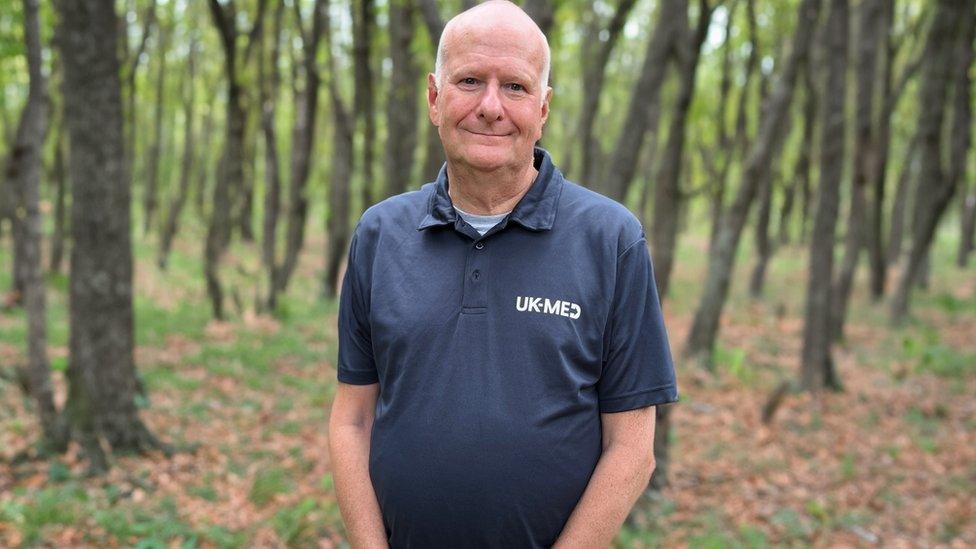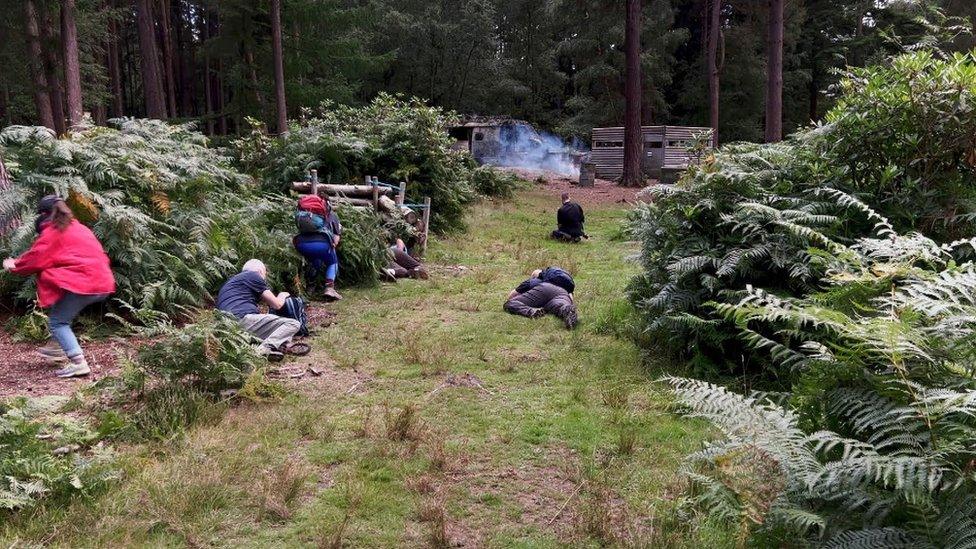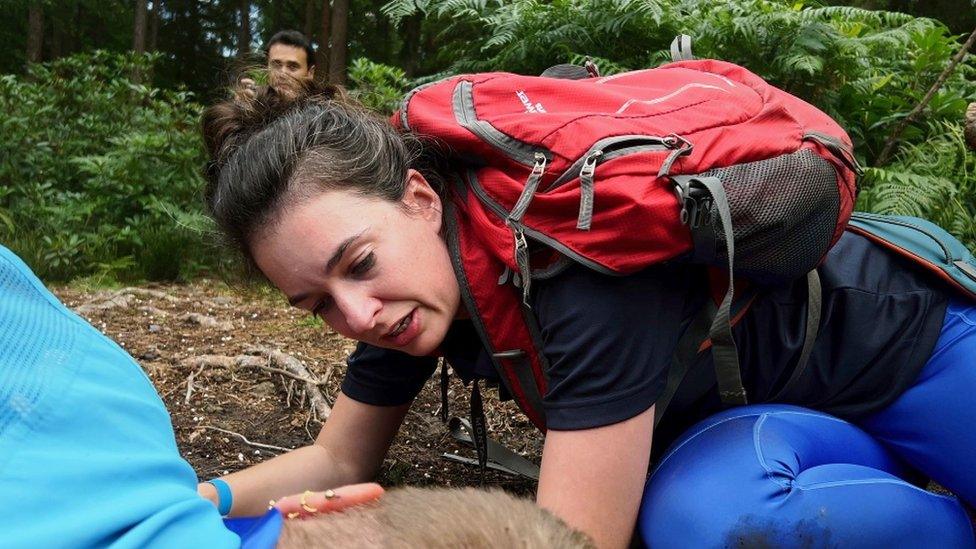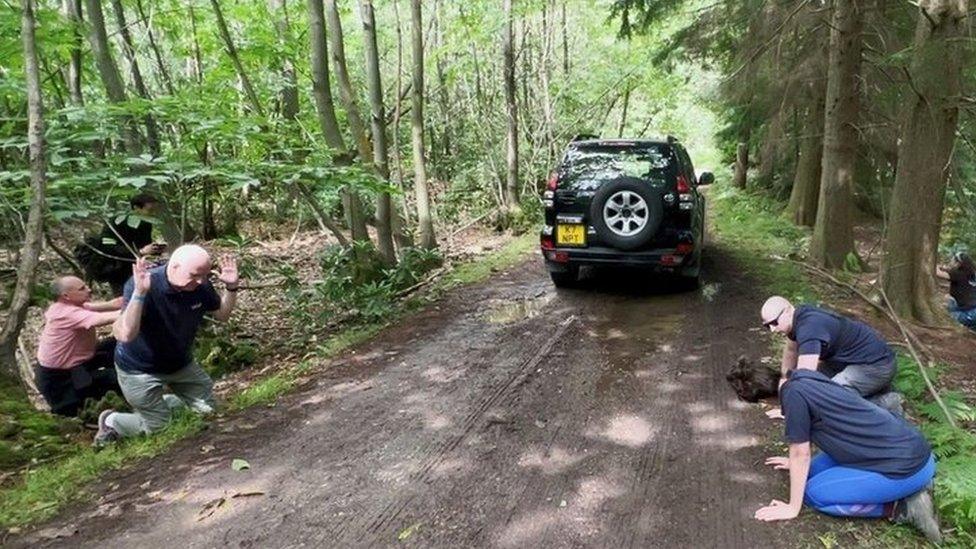The NHS staff training to save lives in war zones
- Published

Pharmacist Michael Norris told the BBC he felt ready to be deployed after receiving specialist training
Every year hundreds of NHS staff drop everything at a moment's notice to fly into war zones and areas hit by natural disasters, setting up medical facilities when a country is desperately in need. The BBC spoke to the latest to undergo the training, taking place in the middle of the English countryside.
A private woodland near Pease Pottage, in West Sussex, is where medics face mock-ups of car-jacking, ambushes, hostile crowds and even terrorist attacks.
For many of them this is all completely out of their comfort zone and a world away from their day-to-day jobs.
"I am a pharmacist who works in the GP surgery so you don't get many people putting guns in your face," says Michael Norris.
The 66-year-old from Gosport, Hampshire, is one of the many who joined charity UK-Med, which is responsible for deploying NHS staff.
"Yes, my family think I'm mad - but I want to help people," he says.

The training (pictured) uses a simulated environment and is organised by UK-Med and run by West Sussex-based International Location Safety
Mr Norris does not yet know where he will be deployed.
But over the past three decades UK-Med has helped save lives across the world, from Ukraine - where it sent 221 doctors since the start of the conflict - to Turkey and Syria, which were hit by an earthquake earlier this year.
Michelle Hanegard, from the charity, explains the training aims to prepare everyone for the worst-case scenario.
"What we are trying to prepare them for is a variety of risks that they may be facing in humanitarian contexts," she says.
The work the trained NHS staff will do once deployed will range from helping on the frontline to providing basic healthcare.
The charity currently has about 1,000 members, half of which are NHS-based clinicians while the other half are experienced global humanitarians.

Jemma Berwick has recently been trained and is ready to be deployed
Jemma Berwick, an Oxford paediatric nurse, is also waiting to be deployed.
"Having a gun waved in your face whilst trying to attend a casualty can be a real-life scenario in the field," she says.
Earlier this year she was sent to the Turkish and Syrian border to help care for people after the devastating earthquake.
She says the training itself can be "quite stressful".
"You just have to remember why you are here and what you are doing," she adds.

Car-jackings, ambushes and terrorist attacks are among the events staged during the training near Crawley
Ms Berwick explains that talking about how she feels helps her cope with deployment to dangerous places.
"Everyone is human and we all have our fears and our anxieties - but I always just think about the need that's on the ground," she says.
She told the BBC she knows she can be deployed "any moment" but says her "bags are packed".
With the training over, it is back to the day job but each must be ready to go with as little as 12 hours notice.

Follow BBC South on Facebook, external, Twitter, external, or Instagram, external. Send your story ideas to south.newsonline@bbc.co.uk, external.